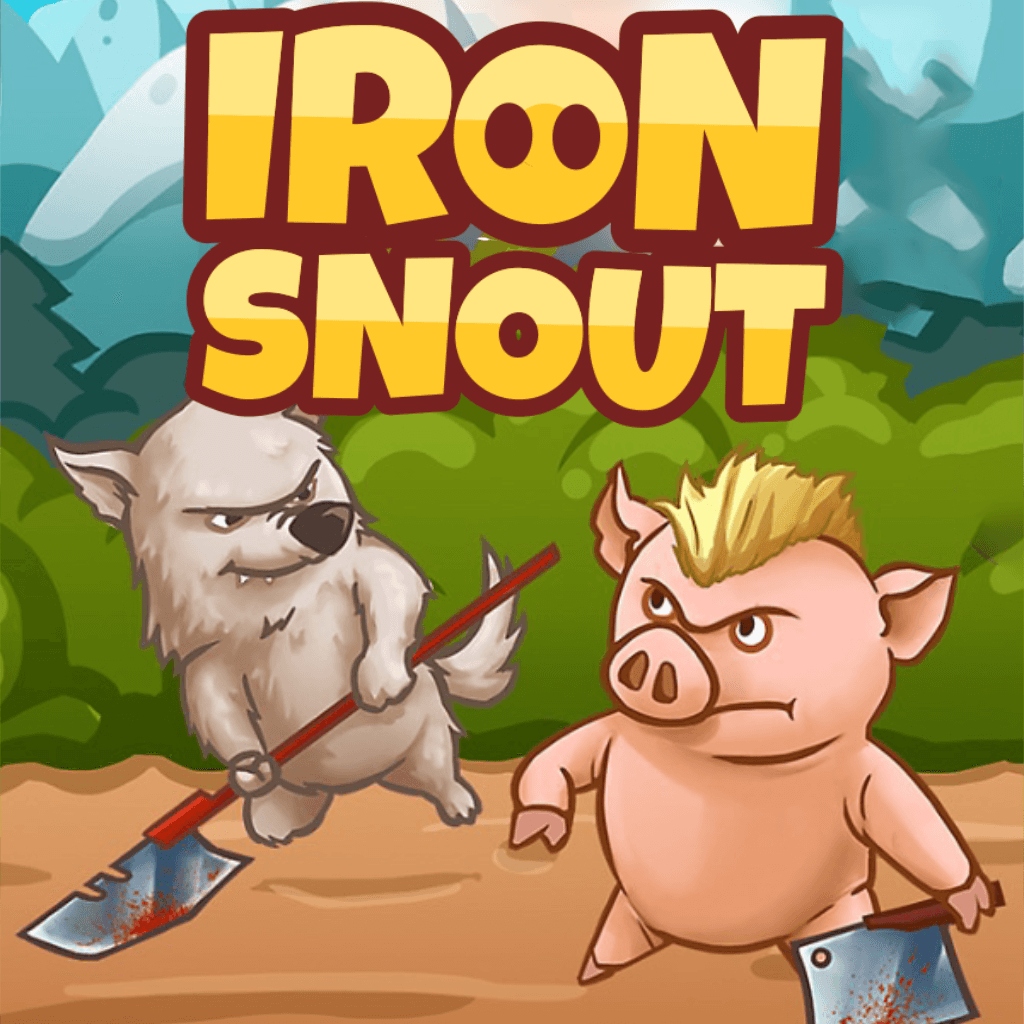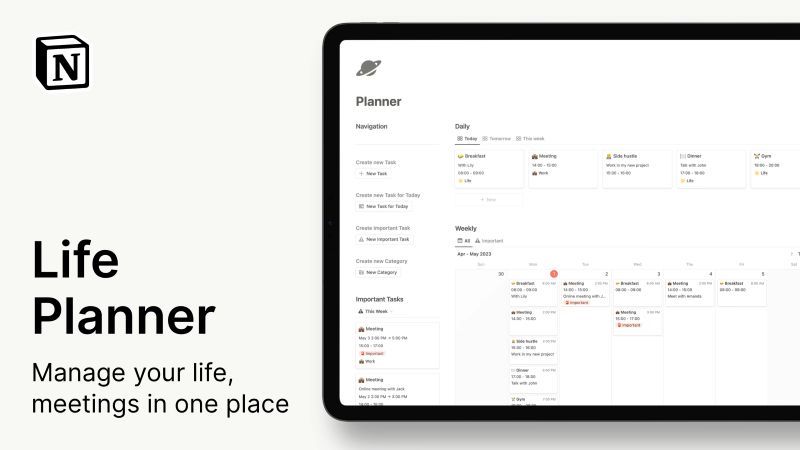

Organizing your life can be a daunting task, but with the right tools, it becomes manageable and even enjoyable. Let's learn more about this topic below with Iron Snout, as we explore how to use Notion to streamline your daily activities and boost productivity.
Notion is a powerful all-in-one workspace that combines note-taking, project management, and collaboration features. It offers a flexible and customizable platform to organize various aspects of your life, from personal tasks to professional projects. With its intuitive interface and versatile functionality, Notion has become increasingly popular among individuals and teams looking to streamline their workflows and stay organized.
When you first sign up for Notion, you'll be greeted with a clean, minimalist interface that may seem overwhelming at first. Don't worry; this blank canvas is your opportunity to create a personalized organizational system tailored to your needs. Begin by familiarizing yourself with the basic building blocks of Notion: pages, databases, and blocks.
Pages are the foundation of your Notion workspace. They can contain various types of content, including text, images, and databases. Think of pages as digital notebooks or folders where you can store and organize information. You can create multiple pages for different areas of your life, such as work, personal projects, and hobbies.
Databases are powerful tools within Notion that allow you to organize and view information in various formats. You can create databases for tasks, projects, contacts, or any other type of structured data. Notion offers several database views, including tables, calendars, kanban boards, and galleries, making it easy to visualize and manage your information.
Blocks are the individual elements that make up your pages and databases. They can be text, headings, images, to-do lists, or even embedded content from other websites. Blocks are highly versatile and can be easily rearranged, allowing you to create dynamic and interactive pages.
One of the most effective ways to organize your life using Notion is by creating a centralized dashboard. This dashboard will serve as your digital command center, providing an overview of all the important aspects of your life at a glance. To create your life dashboard, start by making a new page and giving it a title like "Life Dashboard" or "My Command Center."
Next, add different sections to your dashboard using headings and dividers. Common sections might include "Today's Tasks," "Upcoming Events," "Goals," "Projects," and "Quick Notes." You can customize these sections based on your specific needs and priorities. For each section, consider creating a linked database or embedding relevant pages to keep all your information connected and easily accessible.
For example, in the "Today's Tasks" section, you can create a linked database that filters your main tasks database to show only items due today. This way, you'll always have a clear view of what needs to be accomplished without feeling overwhelmed by future tasks.
Effective task and project management is crucial for staying organized and productive. Notion offers powerful features to help you manage your to-do lists and track progress on various projects. Start by creating a master tasks database that includes all your tasks across different areas of your life.
When setting up your tasks database, include columns for task name, due date, priority, status, and associated project or area of focus. You can also add custom fields like estimated time, notes, or attachments to provide more context for each task. Once your database is set up, you can create different views to suit your workflow preferences.
A popular approach is to create a kanban board view for your tasks, with columns representing different stages of completion (e.g., "To Do," "In Progress," "Done"). This visual representation allows you to easily track the progress of your tasks and move them through different stages as you work on them.
For larger projects, consider creating separate pages with more detailed information, timelines, and resources. You can link these project pages to your main tasks database, ensuring that all related tasks are connected and easily accessible.
Keeping track of your schedule and upcoming events is essential for staying organized. Notion's calendar view is perfect for this purpose. Create a new database for your events and include fields such as event name, date, time, location, and any additional notes or details.
Once you've set up your events database, switch to the calendar view to see all your events laid out visually. You can easily add new events directly from the calendar view or by entering them into the database. Consider color-coding your events based on categories (e.g., work, personal, social) to make it easier to distinguish between different types of commitments at a glance.
To make your calendar even more useful, you can create filtered views for specific types of events or time periods. For example, you might create a "Work Schedule" view that only shows work-related events, or a "This Week" view that focuses on upcoming events in the next seven days.
Goal-setting is an important aspect of personal organization and growth. Notion provides an excellent platform for setting, tracking, and achieving your goals. Create a dedicated goals database to keep track of your short-term and long-term objectives. Include fields such as goal description, target date, current status, and any related tasks or milestones.
To make your goals more actionable, break them down into smaller, manageable steps. You can create a linked database for these sub-tasks, associating them with their parent goals. This approach allows you to track progress on individual steps while keeping sight of the bigger picture.
Consider using Notion's progress bar feature to visually represent your advancement towards each goal. You can update the progress manually or set up a formula to calculate it based on completed sub-tasks. This visual representation can be a great motivator and help you stay focused on your objectives.
Notion is an excellent tool for storing and organizing personal information. Create dedicated pages or databases for important personal data such as contact information, passwords (stored securely), important documents, and medical records. You can also use Notion to keep track of your finances by creating budget trackers, expense logs, or investment portfolios.
For example, you might create a contacts database to store information about friends, family, and professional connections. Include fields for name, phone number, email, birthday, and any other relevant details. You can then create different views of this database, such as a gallery view with profile pictures or a table view sorted by category.
Similarly, you can create a database for important documents, including scanned copies or links to digital versions of passports, insurance policies, and other critical papers. This centralized storage ensures that you always have access to important information when you need it.
Developing good habits and focusing on personal growth are key aspects of an organized life. Notion can help you track your habits and monitor your progress in various areas of self-improvement. Create a habits database with fields for the habit name, frequency, and completion status. You can use this database to check off completed habits daily and view your consistency over time.
For personal development, consider creating a learning log or reading list. Set up a database to track books you've read, courses you've taken, or skills you're developing. Include fields for progress, notes, and key takeaways. This system allows you to reflect on your learning journey and identify areas for further growth.
You can also use Notion to journal or maintain a gratitude log. Create a daily or weekly template for your entries, including prompts or questions to guide your reflections. Over time, this practice can help you gain insights into your thoughts, emotions, and personal growth.
While Notion is excellent for personal organization, it also shines as a collaboration tool. You can easily share specific pages or databases with family members, friends, or colleagues. This feature is particularly useful for managing shared responsibilities, such as household chores or group projects.
To collaborate effectively, create shared workspaces for different groups or projects. You can control access levels, allowing others to view, comment on, or edit specific pages. This collaborative approach ensures that everyone stays on the same page and can contribute to shared goals and tasks.
For example, you might create a shared household management page with your family members, including a chore rotation schedule, grocery list, and shared calendar of important events. This centralized information hub can significantly improve communication and coordination within your household.
One of Notion's greatest strengths is its flexibility and customization options. As you become more comfortable with the platform, experiment with different layouts, database views, and page designs to find what works best for you. Don't be afraid to iterate and refine your system over time as your needs and preferences evolve.
Consider using icons, cover images, and color-coding to make your Notion workspace more visually appealing and easier to navigate. You can also create templates for frequently used page types, such as weekly planners or project outlines, to save time and maintain consistency across your workspace.
Take advantage of Notion's integrations with other tools and services to streamline your workflow further. For example, you can connect Notion to your Google Calendar to sync events, or use the web clipper to save articles and resources directly to your Notion workspace.